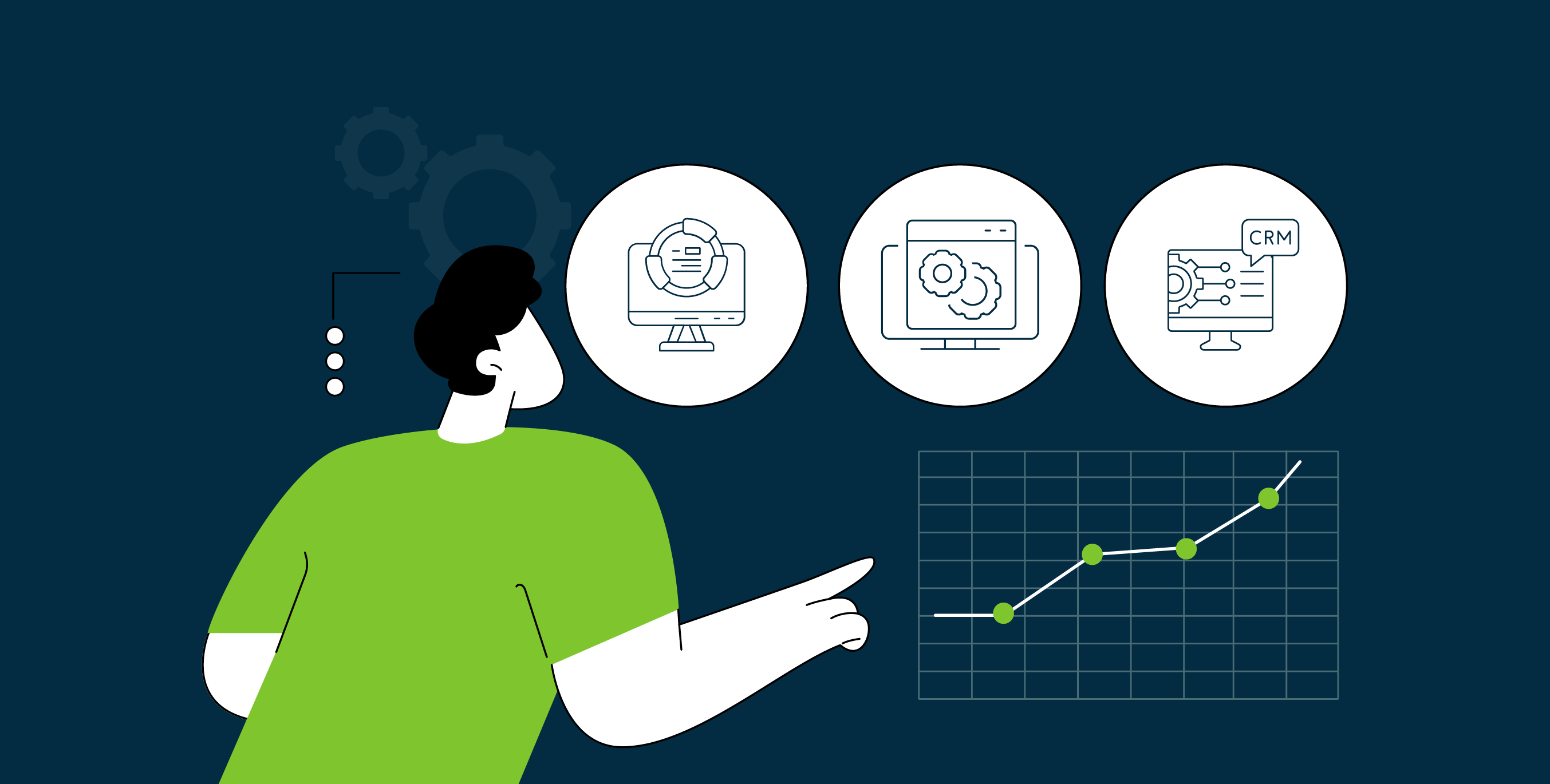
09/30/2024
5 Long-term Nonprofit Benefits With the Right Salesforce Consulting Partner
While Salesforce offers powerful tools for nonprofit organizations like yours, many organizations struggle to tap into its full…

Welcome to our new website! Learn more about how we help Associations succeed with Salesforce solutions. Learn More >


October 16, 2024 | Andrew Lawlor
Nonprofits operate under tighter constraints than most organizations, where every dollar spent must directly impact the mission.
The challenge lies in finding nonprofit organization software that balances cost, operational efficiency, and long-term value. Now, all of the above should take place while enhancing your ability to fundraise, manage programs, and impact reports.
This decision goes beyond meeting immediate needs and should focus more on investing in a platform that will support your organization’s growth for years to come.
So, think of it not as a purchase, but as choosing a strategic partner that will help you scale your mission and expand your impact.
The nonprofit organization software of your choice must fit into your workflows, be easy for your team to adopt, and keep costs in check.
At the heart of every nonprofit is the mission, so the first few questions to ask would be:
It should improve how you manage donors, communicate with stakeholders, and report on program outcomes. Aptaria facilitates these improvements through custom-building CRM applications by Salesforce for nonprofits.
It’s important to assess software for nonprofit organizations based on its entire offering. However, any software that distracts from these key activities is unnecessary noise.
So, make a requirements document for you and your team. Just because a nonprofit organization software works for one doesn’t mean it’s the right fit for you.
Nonprofits often rely on a mix of full-time staff, part-timers, and volunteers, so your software needs to be straightforward.
It’s easy to get caught up in low upfront costs, but that’s just one part of the equation.
You’re also investing in long-term support, updates, and potential add-ons. So, choosing software that delivers it all and stays within your budget is critical.
You are likely to already have systems for an email marketing platform, event management software, or a basic donor database.
The nonprofit organization software you choose needs to integrate smoothly with these existing tools to prevent data silos and avoid duplicating work.
Additionally, customizability is equally important. Off-the-shelf solutions might seem convenient, but they may not align with your specific workflows.
You’ll want software that can be easily tailored to fit your organization’s needs, rather than having to change your processes to fit the software.

Your team handles a wide range of sensitive data from donors and volunteers to beneficiaries.
Hence, strong security measures should be a top priority when choosing nonprofit organization software.
Look for platforms that offer encryption, regular updates, and robust access controls to protect your data.
Additionally, ensure the software complies with relevant data privacy laws, such as GDPR or HIPAA, depending on where your nonprofit operates. Protecting this data is non-negotiable, both from a legal and ethical standpoint.
Also read: 6 Ways Nonprofit CRM Software Helps With Better Management
Selecting the best nonprofit organization software starts with understanding your organization’s specific needs.
The first step is to identify your key pain points. It can be donor management, program delivery, reporting, or something totally different. Identify and prioritize the areas where the software can make the biggest impact.
This process should involve talking to department heads or program managers to gather input on gaps in current tools.
The clearer you are on your needs, the easier it will be to avoid unnecessary features and distractions.

You can’t make this decision in isolation, therefore, involving leadership, program managers, IT staff, and frontline users ensures you don’t overlook critical needs.
Everyone should be aware of the particular benefits such as increased efficiency or better donor engagement, and the costs in place to bring them.
A collaborative approach helps you choose the right nonprofit organization software and makes adoption easier.
Based on your needs analysis, shortlist vendors specializing in nonprofit organization software or possessing a strong track record in the sector. Consequently, request demos to see the software in action.
Make sure to ask specific questions about how the software handles your workflows, like donor segmentation or automating recurring donations. This ensures the solution can handle your day-to-day operations smoothly.
Your organization today may look very different in five years, so it’s important to choose nonprofit marketing software that can grow with you.
Ensure the platform can handle increasing complexity without needing a complete overhaul down the line. Additionally, check the vendor’s roadmap for updates and new features, so you know the product is actively improving and adapting to future needs.
Every dollar counts, so it’s crucial to prioritize nonprofit organization software that delivers value quickly and impacts multiple areas of your operations.
We understand you don’t have the luxury of waiting months for a return on investment.
Therefore, focus on tools that provide immediate benefits through streamlined operations or enhanced fundraising capabilities. sooner it can help drive your mission forward.
The nonprofit organization software you choose should touch as many parts of your operations as possible.
A CRM like Salesforce, for example, can manage donors and volunteers, track programs, and a variety of reports. You’ll get the most out of your investment and avoid the need for additional systems by opting for platforms that integrate multiple functions.
A CRM for nonprofits can consolidate everything in one place resulting in more efficient and manageable operations.
Investing in the right nonprofit organization software is both a technical upgrade and a move toward impacting many more lives. As your organization grows, your CRM should be a bridge and not a barrier.
A system that aligns with your goals and integrates seamlessly into your operations will be the right choice for you.
However, selecting and implementing this software can be complex. Consider partnering with experts who understand both the platform and the unique needs of mission-driven organizations.
As a certified Salesforce consultant specializing in nonprofits, we’ve helped organizations like yours implement and upgrade CRMs tailored to their needs.
With our expertise, you can ensure your technology investment is not only effective but sustainable for years to come.
Reach out to see how Aptaria can assist your nonprofit!
How can a CRM system help an organization to grow?
A CRM system centralizes donor, volunteer, and program data, enabling better relationship management and communication. By automating tasks, generating real-time reports, and streamlining operations, it frees up time and resources, allowing nonprofits to focus on expanding their reach and impact.
Why is it necessary for an organization to have a good CRM system?
A good CRM system helps nonprofits efficiently manage donor relationships, track fundraising efforts, and ensure data security. It provides valuable insights into operations, enabling better decision-making and fostering growth while enhancing transparency for stakeholders and supporters.
How to create a marketing plan for a nonprofit organization?
To create a marketing plan, identify your target audience, set clear goals, and choose channels that resonate with your supporters. Leverage storytelling to communicate impact, set a budget, and track performance using data-driven insights from your nonprofit marketing software to adjust strategies as needed.
